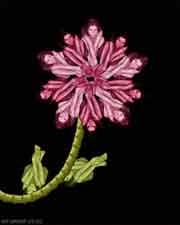
Want to help PREVENT you, your sister, mother, wife, daughter from getting breast cancer. ( and other cancers....) What is cancer: Any of various malignant neoplasms characterized by the proliferation of anplastic cells that tend to invade surrounding tissue and metastasize to new body sites. What causes cancer: Cancer is not something one "catches", rather, it is directly caused by a malfunction in the cellular DNA. Can you cure cancer? Because Cancer is actually one's own cells misbehaving, there truly can never be any "cure" for the condition - only PREVENTION and REGENERATION! Cancer does not kill, as all cancer really is your very own cells that have somehow started to mutate. The body eventually starves to death from the lack of vital nutrients to other healthy cells. How our bodies fight cancer: By resetting metabolism and helping the body repair and regenerate "damaged" DNA, cancer cells often return to their normal state of existence and proper functioning. A healthy body is designed to successfully fight cancer, and can do so as long as it isn't overwhelmed by conditions that make it not possible to function at optimum. Need to know: Environmental toxins accumulate in reproductive organs and are stored in fatty tissues such as breasts. Breast health is affected by stagnant lymph (lymph drainage is dependent on muscle movement more then blood flow circulation, and is affected by not exercising). Poor elimination, emotional stress, hormonal imbalance and degenerating organ function such as kidney, heart or lungs from obesity, smoking or alcohol use can further compromise the immune system function. STOP PINK WASHING and get educated!! Don't eat the pink cupcakes! It is not ethical to be selling "pink cupcakes for the cure" that are made with High Fructose Corn Syrup, partially hydrognated oils, artificial colors, powdered milk products, preservatives, wheat, GMO products such as soy or corn or beet sugar, and other processed food substances that damage normal physiology and metabolism, and label the packaging to announce that the sale of such products will go towards finding the cure to cancer. Here's how we'd work to find a "cure" for breast cancer... Skip the pink cupcake this October, grab your girlfriend, mother, daughter, neighbor and address some of the KNOWN root causes....
STOP allowing hormones in the food chain including the inclusion of artificial hormones, artificial, colors and chemicals that are synthetic hormone markers, toxic preservatives (Nitrites and pesticides, growth hormones, GMO corn and soy in animal feed lots, and full spectrum anti-biotics in our food chain, (now approved by the FDA)
The prevalent use of these in USA ag, dairy, meat production and processed food may be the reason that breast cancer in North America is the highest in the world.
STOP NOW ALL allowed sources of exposure to ionizing environmental radiation, (including new airport security full body xray machines,, avoid annual mammograms), ......Radioactive materials that decay spontaneously produce ionizing radiation, which has sufficient energy to strip away electrons from atoms (creating two charged ions) or to break some chemical bonds. Any living tissue in the human body can be damaged by ionizing radiation in a unique manner. The body attempts to repair the damage, but sometimes the damage is of a nature that cannot be repaired or it is too severe or widespread to be repaired. Also mistakes made in the natural repair process can lead to cancerous cells. The most common forms of ionizing radiation are alpha and beta particles, or gamma and X-rays. Radiation can cause changes in DNA, the "blueprints" that ensure cell repair and replacement produces a perfect copy of the original cell. Changes in DNA are called mutations.
STOP NOW the creation and exposure to, nuclear waste and the products of war such as uranium enriched weapons.
STOP using antioxidants and vitamins that are petroleum based.
STOP restaurants from cooking with partially hydrogenated oils, (Harvard School of Public Health researchers estimate that trans fat had been causing about 50,000 premature heart attack deaths annually, making partially hydrogenated oil one of the most harmful ingredients in the food supply , Denmark has banned the use of trans fats in public restaurants.)
STOP ignoring the ingredient label. Avoid nutritional ignorance: Be aware that some processed foods are messing with metabolism such as high fructose corn syrup. Cancer rates rise with obesity.
STOP selling cigarettes with known cancer causing chemicals.
STOP NOW supporting pharmaceutical companies but not organic farmers as part of medical plans, health insurance and factory approach to health care. Support prevention through life style and nutrition as part of your health insurance plan.
STOP eating and selling deep fried food.
STOP drinking excessive alcohol. Learn about the direct link between breast cancer, obesity, drinking and estrogen in fatty tissues.
STOP using deodorant with aluminum salts (anti-perspirants) Don't apply a cancer causing product directly on lymph nodes on breast tissue, use alternative deodarant products or baking soda instead.
STOP using cooking pots with aluminum, or peeling teflon or non stick coats
STOP using lipstick with lead, mascara and lighbulbs containing mercury. Heavy metals including cadmium, nickel and aluminum, directly or indirectly activate the estrogen receptor in the human breast cancer cell line MCF-7
STOP habitual consumption of diet soda and products with artificial sweeteners.The first artificial sweeteners used in diet soda were cyclamates. In 1970 the FDA banned cyclamates in the USA on evidence that they caused cancer in lab rats. Cyclamates are still used in many countries around the world, including for diet soda.
STOP drinking cow milk and dairy products made in America with rBGH (Bovine growth hormone)
STOP building residential dwellings on top of contaminated "brown" land (Love Canal etc)
STOP using aquifers for public drinking supply that are known contaminated with heavy metals, pesticides, fungicides. If you suffer from candida, are prone to yeast infections, fungus or tumors, change your lifestyle and diet now.
See More on Hawaii Health Guide related links!
|







